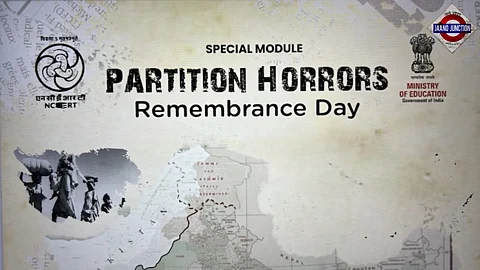

The National Council of Educational Research and Training (NCERT) has released a new classroom module to mark Partition Horrors Remembrance Day, but its interpretation of history has triggered a fierce political debate.
The special module, prepared separately for students of Classes 6–8 and Classes 9–12, goes beyond the regular textbooks. It places the responsibility for the Partition of India on three forces– Muhammad Ali Jinnah for demanding it, the Congress leadership for accepting it, and Lord Mountbatten for rushing its implementation.
According to the text, Partition was not the work of a single leader. It points to:
Jinnah, who had been advocating division since the Lahore Resolution of 1940, where he described Hindus and Muslims as belonging to “two different villages, philosophies, social customs, and literature.”
Congress, which ultimately agreed to Partition, with leaders like Sardar Patel and Jawaharlal Nehru accepting it to avoid civil war. The text quotes Patel as saying that India had become a battlefield and that Partition was better than nationwide bloodshed.
Gandhi, who opposed Partition personally but chose not to resist Congress through violence. On June 14, 1947, Gandhi even persuaded the Congress Working Committee to approve Partition.
Mountbatten, who announced that power would be handed over in June 1948, but abruptly advanced the date to August 1947. The module blames this hasty move for chaos, pointing out that in some regions, people didn’t even know whether they belonged to India or Pakistan on Independence Day.
The text also highlights how Partition created a lasting security issue in Kashmir, which neighbouring Pakistan has used to pressure India in multiple ways since 1947.
According to him, Partition was the result of a “nexus between the Hindu Mahasabha and the Muslim League,” not just Jinnah, Congress, or Mountbatten. Khera claimed that the Hindu Mahasabha first raised the idea of Partition in 1938, which Jinnah later repeated in 1940. He also accused the RSS of posing a threat to India’s unity.
The clash over this NCERT module has now turned into a larger fight over how Partition and its horrors should be remembered in schools. While the module frames Partition as a consequence of Jinnah’s demand, Congress’s reluctant acceptance, and Mountbatten’s hurried execution, the opposition insists it hides the role of other forces.
This debate reflects a deeper political struggle, about which voices get to shape India’s historical memory, and how future generations will learn about one of the most traumatic episodes of the nation’s past.
The NCERT’s special module, meant to educate students about the tragedy of Partition, has instead ignited a new controversy. By assigning blame to specific leaders while downplaying others, it has opened up old wounds and political rivalries.
As schools prepare to use the module, the row raises a bigger question: Should history lessons be about facts alone, or about the interpretations that different groups want to promote?
